Transitions: Prof Ghafoor Ahmad dies
He was well-known for his soft spoken nature and even temper.
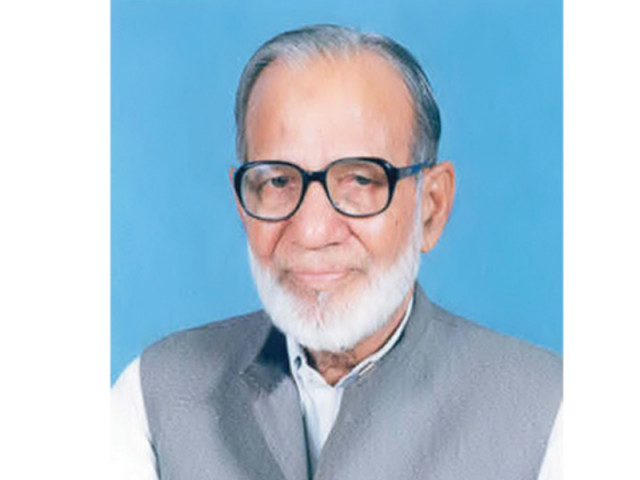
Professor ghafor served as federal minister for industries in 1978-79. He was also secretary general of the Islami Jamhoori Ittehad between 1988 and 1990.
Jamaat-e-Islami’s Vice Amir Professor Ghafoor Ahmad passed away at the age of 85 on Wednesday, after prolonged bouts of poor health. Prof. Ghafoor breathed his last on way to the Patel Hospital Karachi, where he was rushed after his condition deteriorated.
His funeral prayers will be offered today (Thursday) at 4:30pm at New MA Jinnah Road, near Islamia College. He is survived by two sons and six daughters. Prof. Ghafoor’s career was a long and illustrious one. He was well-known for his soft spoken nature and even temper.
It was on the night of January 28, 1973 when he made his first appearance on Pakistan Television (PTV), which left an unforgettable mark on the minds of many.
He spoke against the presidential form of government that the then premier, Zulfiqar Ali Bhutto, preferred. Veteran journalist Farhad Zaidi hurled one question after another in support of the government but Prof. Ghafoor kept on answering calmly. The next day Dawn newspaper called him “the Jamaat centre forward.”
Prof. Ghafoor worked as an accountant but later adopted teaching as a profession and remained a faculty member of the Commerce and Economics Department at Urdu College from 1950 to 1956 and then again from 1957 to 1961.
He also served as a lecturer at the Institute of Chartered Accountants of Pakistan, Jinnah Institute of Industrial Accountants and Pakistan Institute of Industrial Accountants. He also served as member of Sindh University’s curriculum committee and curriculum board of the University of Karachi.
The writings of Maulana Syed Abul Ala Maududi, the founder of Jamaat-e-Islami, had been an inspiration for him like many others since 1944 but he formally became part of the party in 1950, after migrating to Pakistan in middle of 1949.
In April 1958, the JI decided to take part in the local body elections of Karachi for the first time. Prof. Ghafoor was elected member of the Karachi Metropolitan Corporation (KMC) from Liaquatabad by securing 5,803 votes.
However, he could work for just five months as on October 7, 1958, then president Iskandar Mirza staged a coup, imposed martial law and appointed Gen Mohammad Ayub Khan as the Chief Martial Law Administrator. Despite his influence within Jamaat-e-Islami and to some extent in Karachi, Prof. Ghafoor remained largely unknown in national politics until he was elected to the National Assembly from Karachi in 1970. Thereafter, he gradually built his stature as a politician who was respected even by his adversaries.
Soon after the promulgation of the 1972 interim constitution, a committee of 25 members of the national assembly was formed that consisted of the parliamentary leaders of all political parties. Prof. Ghafoor was one of its most active members.
ZA Bhutto preferred a presidential form of government, something that all the political parties opposed. Finally, a draft favouring a parliamentary form of government was submitted to the National Assembly after much reconciliation and delay on December 31, 1972.
That was the time Prof. Ghafoor appeared on PTV. While revisiting the political ups and downs of the time, ZA Suleri, a notable journalist and writer, called him the finest parliamentary leader of the Bhutto era in an article published in Daily Jang on July 21, 1977.
He was also nominated as the secretary general of the United Democratic Front, which was formed on March 13, 1973 by JI and other opposition parties to counter the PPP.
Later, at the time of parliamentary elections, the opposition parties gelled into the Pakistan National Alliance (PNA) and Prof. Ghafoor served as its secretary general from 1977 to 78. He was also a member of the team that carried out crucial negotiations with ZA Bhutto.
He served as federal minister for industries in 1978-79. He was also secretary general of the Islami Jamhoori Ittehad between 1988 and 1990.
(WITH ADDITIONAL REPORTING BY OUR CORRESPONDENT)
Published in The Express Tribune, December 27th, 2012.

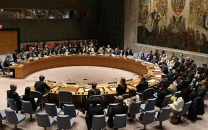
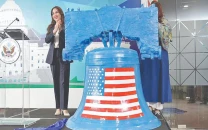
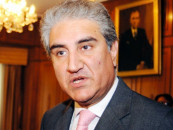
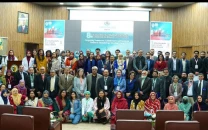
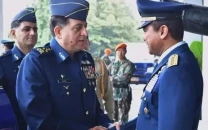













COMMENTS
Comments are moderated and generally will be posted if they are on-topic and not abusive.
For more information, please see our Comments FAQ